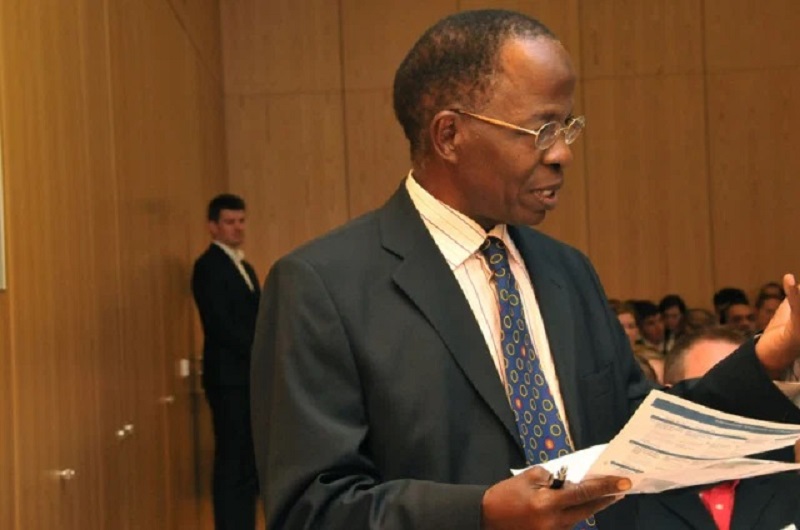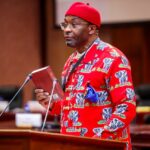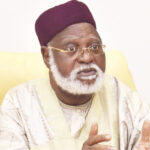Most civil servants in the federal service would start and end their careers without ever knowing what goes about in at least three ministries: Ministry of Foreign Affairs, Justice and State House. Among them all the Ministry of Foreign would probably the most territorial who did not tolerate intrusion from other wings of the service. And probably that’s why a book of memoir written by retired ambassadors from that end is read with total curiosity. But you must give it to them. They are the most productive of all and their memoirs have over the years given us more insight into the operations of government and how policies originated and impacted both within the polity and outside.
- ‘Chinese nationals destroying Nigeria’s bushes, forests, water areas’
FG warns against encroaching on national monuments
Many of the memoirs are an absolute delight for the rich behind the scenes information they give. Good examples will include Ambassador John Mamman Garba’s The Time Has Come: Reminiscences and Reflections of a Nigerian Pioneer Diplomat, Ambassador Olujimi Jolaoso’s In The Shadows: Recollections of a Pioneer Diplomat, and General Joseph Garba’s Diplomatic Soldiering: Nigerian Foreign Policy (1975-79). Of course there are a few, from my perspective, one could dismiss as self-serving and profoundly mawkish. On top of that list could be Ambassador Olusola Fafowora’s Lest I Forget: Memoirs of a Nigerian Career Diplomat, where he spilt plenty of ink denigrating many of his colleagues and co-workers, particularly those of Northern origin including General Joseph Garba, Ambassador Ibrahim Gambari and Ambassador Rafindadi.
Fortunately, Ambassador Abdul Rimdap’s Confidence in Diplomacy: Defending Nigeria at Home and Abroad is of a different mould. I would put it among the delightful books I have mentioned. I picked up a copy recently from a bookshop and found it so enthralling that I read it in one sitting. My curiosity was whetted by the fact that I had the privilege of making the acquaintance of Rimdap many years ago, when we were both students in the MSc International Economics class of 1979/80 at the University of Wales in Swansea, UK. There were only a handful of Nigerians in the class, and even then Rimdap stood out for his pointed and valuable contributions in class discussions. He had come to Swansea well prepared. A 1974 graduate of ABU Zaria, Rimdap, worked for a few years in the Plateau State Civil Service before getting out to The Hague for a Post-Graduate Diploma in Development Policy and Economic Planning in the Institute for Social Studies (ISS). He joined the Foreign Service in 1985, a few years after we left Swansea.
The more curious thing about Rimdap’s life is that he went to school by accident. Coming from a large family of over 20 children, he was the only one that went to school. He was herding his family’s cattle near a primary school when the headmaster by some bizarre circumstances found Rimdap eavesdropping on one of the classes by the window. He got in touch with the family and had him drafted into the school and of course the rest became history.
Rimdap came into the services of the Foreign Office when the country was under military regime with all the difficulties of dealing with the major powers whom mostly run democratic structures. Due to his outstanding credentials and may be the manner he conducted himself Rimdap found himself in choice postings, some in the hotspots of the world. He was at Ethiopia where he also dealt with OAU and ECA headquarters. He was at Brussels, Belgium, which he referred to as the cockfighting arena of Europe where he also dealt with EEC matters. After a stint at headquarters, he was posted to the Permanent Mission of Nigeria in Geneva where he had a taste of multilateral diplomacy.
He returned to headquarters to run some desks at the beginning of the Abacha regime, which arguably would be one of the most difficult periods for Nigerian diplomats. No wonder he called the chapter “Diplomacy by a Pariah State”. He was off to open the Consular office in Karachi and when he returned was appointed High Commissioner to Zambia. At the beginning of the democratic dispensation, President Olusegun Obasanjo appointed him Ambassador and posted him to Vienna, Austria another posting that involved multilateral and bilateral diplomacy. After Vienna, he had a busy time at the headquarters running some of the most important departments in the ministry. In 2007 he was appointed Ambassador to Germany which he regarded as the jewel in the crown. Being Nigerian Ambassador to Germany in that period meant one dealt intimately with the issues surrounding the illness of President Umaru Musa Yar’Adua. Rimdap did not shy away from the issue. He wrote as much about it but with skill and the required sympathy. To tidy up the book, Rimdap gave an overview of the Nigerian Foreign Service spelling out his views here and there on various issues confronting it.
Re: Maiduguri and its woes.
Thanks for placing the issue of the unending absence of electricity there on the front burner. That way, perhaps, some positive action may be taken urgently. It’s like, under the pretext of insecurity, authorities are having a field day neglecting us.
Mal Baba Bukar, Maiduguri.

 Join Daily Trust WhatsApp Community For Quick Access To News and Happenings Around You.
Join Daily Trust WhatsApp Community For Quick Access To News and Happenings Around You.


